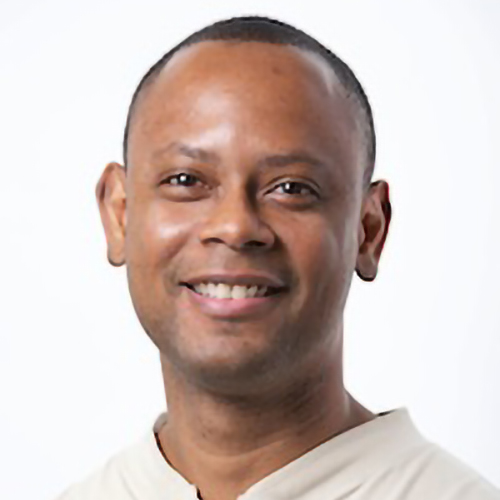Computer Science, BSc Hons
Develop computer and software systems using the skills and experience you’ll gain on our Computer Science degree.
This degree in Computer Science gives you a firm grasp of the science underpinning computer and software systems. You will gain practical experience of developing systems using the latest technologies and techniques, as well as exposure to the latest trends that will shape the future of computer science.
You can study our core Computer Science course or choose a specialist endorsement in Artificial Intelligence, Cyber Security, Data Science, Games or Networking. The modules you can study include Artificial Intelligence Applications, Machine Learning, Information Visualisation and Big Data.
By the end of the course, you will be equipped to study independently and to develop and adapt your skills throughout your career
The University of Greenwich has a long-standing relationship with the British Computer Society (BCS), which accredits our computing degree programmes. Our current BCS accreditation includes the intake up to 2024. The re-accreditation is expected to be confirmed in Autumn 2024 for the 2025 intake onwards.
UCAS points
120 (full requirements below)
Course/institution codes
G400 G BSc/CS
Location
Duration
- 3 years full-time
- 6 years part-time
- 4 years sandwich
Start month
September
Home* /international fees 2025/26
£9,535 /£17,500
What you should know about this course
* The Department for Education has indicated that it intends to raise the Home tuition fee limit from £9,250 to £9,535 for 2025/26.
What you will study
About the course team
This degree course employs a range of innovative teaching and learning methods. Lectures and laboratories/tutorials are dynamic and interactive. You will be taught by an experienced team of lecturers, supported by a team of technical officers.
Come and meet us
We are offering virtual events so that you can still experience how Greenwich could be the right university for you.
Next Open Days
Got a question?
To find out more about our Open Days and Campus Tours or if you need any assistance, please email opendays@gre.ac.uk.
Entry requirements
- 120 UCAS Tariff points. We accept A Levels, T Levels, BTECs, Access to HE and all other qualifications with UCAS Tariff points.
We make Contextual offers to this programme. Applicants that meet specific eligibility criteria will be made a contextual offer with a reduced tariff of up to 16 UCAS Tariff points. Other entry requirements such as GCSEs, Interview, etc., will still need to be met. For further information, please see our Contextual Admissions policy.
For more information, use our contact form or call us on 020 8331 9000.
You can also read our admissions policy.
For more information, use our contact form or call us on 020 8331 9000.
You can also read our admissions policy.
Available to overseas students?
Yes
Can I use Prior Learning?
For entry: applicants with professional qualifications and/or four years of full-time work experience will be considered on an individual basis.
For exemption: If you hold qualifications or courses from another higher education institution, these may exempt you from courses of this degree.
How you will learn
Teaching
Learning takes place through a combination of timetabled learning and independent study.
You can view more information about how each module is taught within our 'What you will study' section.
Seminars and workshops enable you to discuss and develop your understanding of topics covered in lectures in smaller groups. You will also be able to meet your personal tutor. Timetabled learning may fall between 9am and 9pm depending on your courses and tutorials.
Class sizes
The typical student intake per year averages 50-100. Lectures are normally attended by larger groups, and seminars or tutorials by smaller groups. Intake and class size can vary more widely for modules that are shared between degrees.
Independent learning
Outside of timetabled sessions, you are also expected to dedicate a significant amount of time each week to self-study. This may involve further reading and research, analysing relevant sources in depth, and preparing coursework and presentations. You can use our Stockwell Street library and online resources to support you in these activities.
We encourage you to join societies such as:
- The University of Greenwich's Computer Society
- Games Development Society
- And many other student societies supported by the University of Greenwich Student Union.
Overall workload
Your overall workload consists of lectures, practical classes, independent learning, and assessments. For full-time students, the workload should be approximately equivalent to a full-time job. For part-time students, this will reduce in proportion with the number of modules you are studying.
Each module you study towards this degree is worth 15 or 30 credits. These represent around 150-300 study hours respectively. If you receive 72 contact hours for a 30-credit module, you should expect to commit 228 hours to independent study to complete it successfully.
Assessment
You can view how each module is assessed within our 'What you will study' section.
Each course has formal assessments which count towards your grade. Some courses may also include 'practice' assignments, which help you monitor progress and do not count towards your final grade.
Feedback summary
We aim to give feedback on assignments within 15 working days.
Dates and timetables
The academic year runs from September to June.
Full teaching timetables are not usually available until term has started. For any queries, please use our contact form.
Official statistics on Discover Uni
Full time
Part time
Fees and funding
Tuition fees
| Cohort | Full time | Part time | Distance learning |
|---|---|---|---|
| Home* | £9,535 | £2,384 per 30 credits | N/A |
| International | £17,500 | £4,375 per 30 credits | N/A |
University is a great investment in your future. English-domiciled graduate annual salaries were £10,500 more than non-graduates in 2023 - and the UK Government projects that 88% of new jobs by 2035 will be at graduate level.
(Source: DfE Graduate labour market statistics: 2023/DfE Labour market and skills projections: 2020 to 2035).
* The Department for Education has indicated that it intends to raise the Home tuition fee limit from £9,250 to £9,535 for 2025/26.
Other costs
Technology: There are no compulsory costs beyond your tuition fees. However, we may recommend that you purchase a backup device (such as a portable hard drive).
Software: We provide licences for certain software to use on your own computers, depending on your course. This may include Virtual Desktop access, Tableau Desktop, Microsoft Azure Devtools for Teaching (including Visio, Project, SQL Server, etc). You will also have access to Nvivo, SPSS Modeler and SPSS Amos. Any licences for software outside of our range will come at your own cost.
Scholarships and bursaries
We offer a wide range of financial help including scholarships and bursaries.
The Greenwich Bursary
This bursary is worth £700 for new undergraduate students with a low household income, entering Year 0 or 1 who meet the eligibility criteria.
EU Bursary
Following the UK's departure from the European Union, we are supporting new EU students by offering a substantial fee-reduction for studying.
Financial support
We want your time at university to be enjoyable, rewarding, and free of unnecessary stress, so planning your finances before you come to university can help to reduce financial concerns. We can offer advice on living costs and budgeting, as well as on awards, allowances and loans.
Careers and placements
Will I have a work placement?
If you enrol on 'sandwich mode', you can take a one-year full-time paid placement between your second and final years. Whilst on a sandwich placement, you retain your student status and have full support from the University and your tutors as normal. We support students in securing their own placements.
Former students have secured placement years at HSBC Hong Kong, Kent Connects, Affiliate Window, CERN, Royal Museums Greenwich and Uctel.
How long is my placement?
Sandwich placements last for between 36 weeks (full-time) and 13 months.
Students on the 15-credit UAS placement work one day per week for 12 weeks. Those on the 30-credit UAS placement work one day per week for 16 weeks.
What are the financial arrangements?
Sandwich placements are usually paid full-time positions. The salary should reflect the going rate for an entry level role in the relevant industry.
Undergraduate Ambassador Scheme (UAS) placements are unpaid.
What sort of careers do graduates pursue?
Graduates from this degree can pursue a career as a data analyst, software engineer, user experience (UX) designer, an artificial intelligence (AI) or machine learning specialist, mobile applications developer, games programmer, and a quality assurance (QA) or test developer.
Are internships available?
Students are encouraged to gain relevant work experience if possible, including internships, whether this is paid or unpaid. Students are responsible for finding their own internships, though we will support you through the application process.
Do you provide employability services?
Employability activities take place all the time at Greenwich and students are encouraged to take part in as many opportunities as possible.
The central Employability and Careers Service provides support for students preparing to apply for placements and graduate roles, such as CV clinics, mock interviews and employability skills workshops.
Each School also has its own Employability Officer who provides specific opportunities relevant to your own course. They work closely with professionals in the industry to ensure you are well-prepared for the workplace and have already begun to build your professional network by the time you graduate.
Accommodation
Greenwich
Living in halls of residence is a great way to make new friends and get into the social side of university life. With four great locations, all minutes away from the campus and the centre of historic Greenwich , you will be at the heart of one of the most beautiful university settings in the UK.
Rooms start at £146.30/wk and include Wi-Fi, utility bills, access to our on-campus gym and 24-hour security - and just a 10-minute train journey to central London. Students based at our Greenwich campus can also choose to live the Student Village at Avery Hill, which is only a short ride on our free shuttle bus.
Support and advice
Academic skills and study support
We want you to make the most of your time with us. You can access study skills support through your tutor, our subject librarians, and our online academic skills centre.
Where appropriate, we provide support in academic English and mathematics. If you need to use particular IT packages for a specific module, we provide training for this.
Do you provide employability services?
Employability activities take place all the time at Greenwich and students are encouraged to take part in as many opportunities as possible.
The central Employability and Careers Service provides support for students preparing to apply for placements and graduate roles, such as CV clinics, mock interviews and employability skills workshops.
Each School also has its own Employability Officer who provides specific opportunities relevant to your own course. They work closely with professionals in the industry to ensure you are well-prepared for the workplace and have already begun to build your professional network by the time you graduate.
Not quite what you were looking for?
We've got plenty of other courses for you to choose from. Browse our undergraduate courses or check our related courses below.....
Computer science at the University of Greenwich
Discover the possibilities of technology at Greenwich, where courses shape students from undergraduate to postgraduate levels. Covering some of the most relevant industry topics, such as cybersecurity and artificial intelligence.
Visit our computer science degrees page.
Computer science degrees
Mode of study
Select from the dropdown below.
| Course level | |
| UCAS code | |
| Duration | |
| Location |










